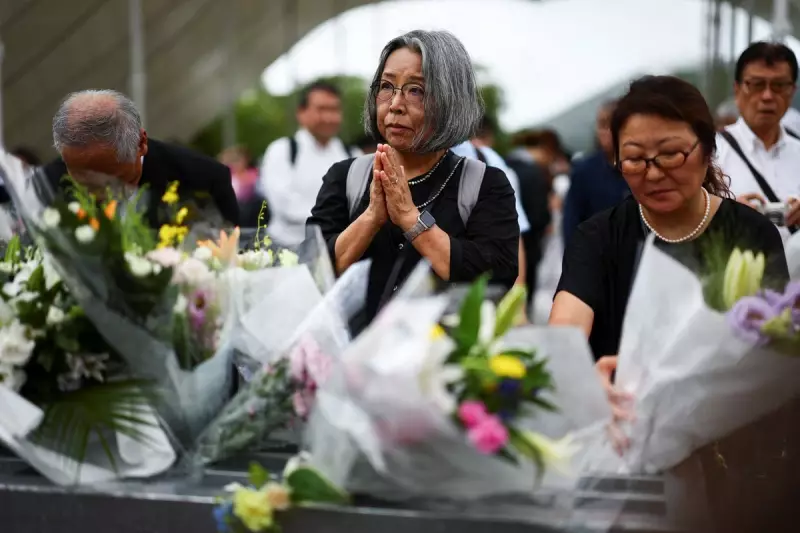
Nagasaki solemnly observed the 78th anniversary of the catastrophic atomic bombing by the United States during World War II, with poignant calls for a nuclear-free world.
On August 9, 1945, the port city was obliterated by a plutonium bomb nicknamed 'Fat Man,' just three days after Hiroshima suffered a similar fate. The attack claimed approximately 74,000 lives by year's end, with survivors enduring lifelong physical and psychological scars.
A City's Resilience
During this year's memorial ceremony at Peace Park, Nagasaki Mayor Shiro Suzuki delivered a powerful address: "As the last city to experience nuclear warfare, we have a moral obligation to ensure no other population suffers this horror." The mayor specifically criticized nuclear states for abandoning disarmament efforts amid growing global tensions.
Survivors' Plea
Atomic bomb survivors (hibakusha), now averaging 85 years old, shared harrowing testimonies. "The mushroom cloud turned day into night," recounted 89-year-old Michiko Tanaka. "We must teach younger generations that nuclear weapons solve nothing - they only create endless suffering."
Contemporary Nuclear Threats
The commemoration gained urgency as global nuclear arsenals expand. Japan's Prime Minister Fumio Kishida, representing the only atomic-bombed nation, pledged to bridge nuclear and non-nuclear states at the upcoming G7 summit in Hiroshima.
As paper lanterns floated down the Urakami River in remembrance, participants echoed Nagasaki's eternal message: "No more hibakusha. No more war."





